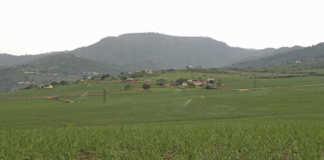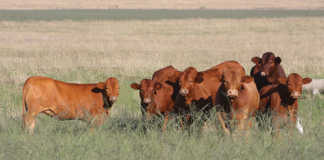These permits allow them to graze their animals in SA. Results of the abuse include overgrazing on the SA side of the border with Lesotho, diseases spread among SA livestock, and even the theft of livestock from SA owners. A landmark meeting held recently in Ladybrand in the Free State facilitated by the Red Meat Industry Forum (RMIF) and the Department of Agriculture, Forestry and Fisheries (DAFF), saw a reported 66 interested and affected parties attend the meeting.
They were given an opportunity to air their views and concerns regarding the current management of the grazing permits issued to Lesotho citizens in terms of Section 16 (1) of the Animal Improvement Act 62 of 1998. According to a presentation by Lardus van Zyl, chairperson of the Red Meat Producers’ Organisation (RPO), the requirements of the grazing permits system for Lesotho residents were often flouted, with DAFF unable to effectively control these cases due to a lack of capacity.
“Permits are falsely issued, incorrect information is provided and livestock is not branded,” were some of the RPO’s concerns. “Sotho shepherds and permit holders build permanent livestock posts and allow livestock to graze without respecting the rights of RSA landowners on the border.”
The RPO said some SA farmers bought stock illegally from Sotho owners, without the necessary legal permits, avoiding paying tax. Van Zyl added that there were currently about 180 000 cattle, sheep and goats from Lesotho in SA, about 80% of which were here without the necessary grazing permits.
Representatives of the SA Revenue Service explained that there was a major threat of livestock diseases, such as foot-and-mouth disease, being brought into SA via unvaccinated and non-health checked livestock from Lesotho. Dave Ford, chairperson of the RMIF, said it had emerged that problems with the existing grazing livestock permits system with Lesotho were far greater than originally thought.
“I proposed that a technical committee be nominated from the groups present,” said Ford. “This committee should get together to determine some terms of reference. After three months they should return with a proposal on the way forward. The proposal was carried and the RMIF will co-ordinate. The first meeting of the technical committee will be held shortly.”
DAFF did not comment at the time of going to print.











